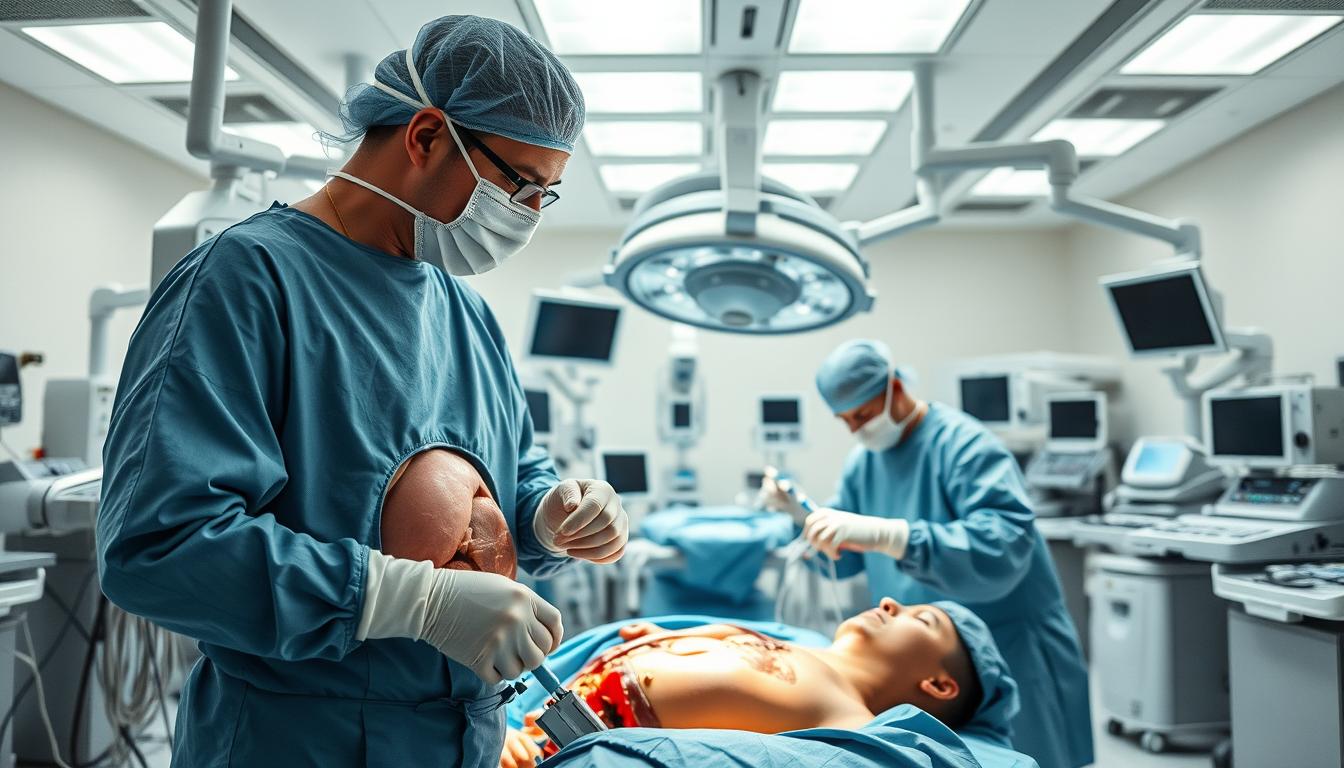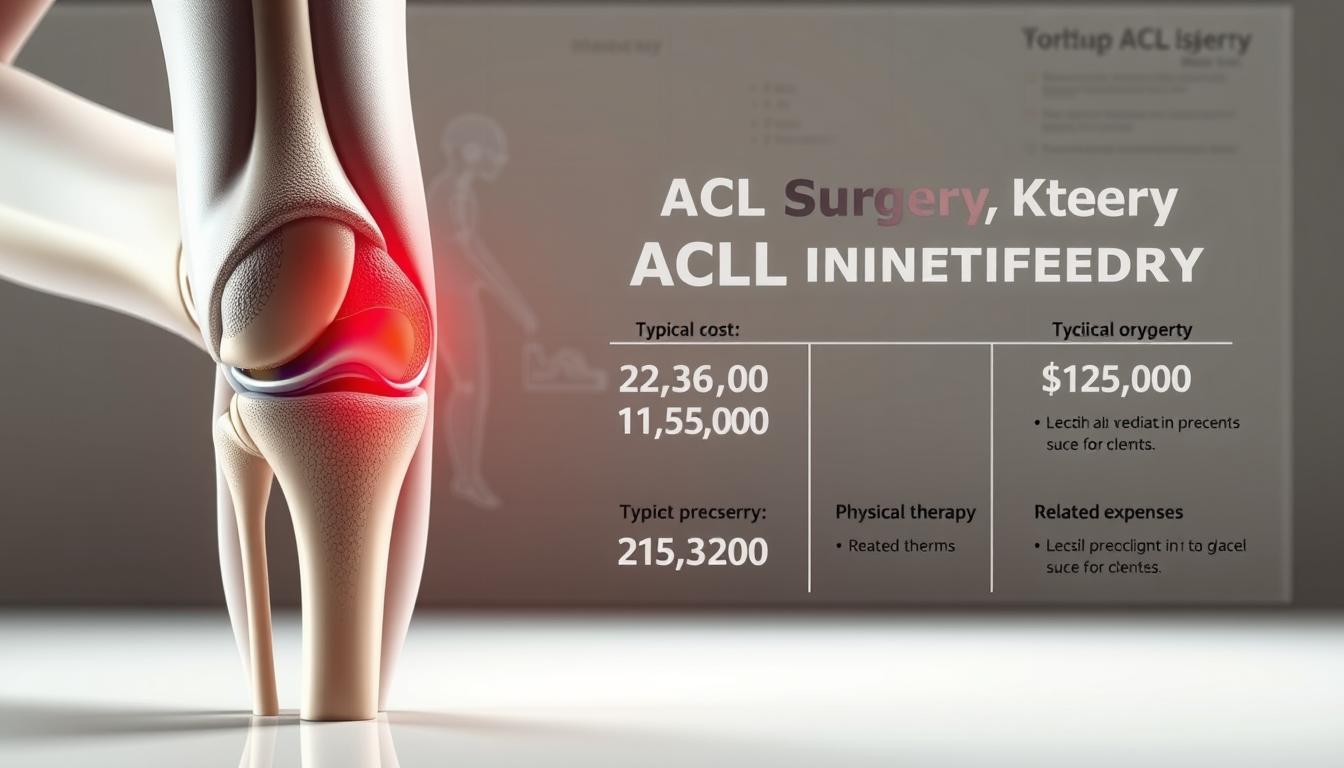After surgery, a well-balanced diet plays a crucial role in the bone healing process. Adequate nutrition provides the body with the necessary building blocks to mend and restore bone health. Doctors often recommend a diet rich in specific nutrients to support recovery.
A diet that includes the right recovery foods
can significantly impact the healing process. Nutrients such as calcium, vitamin D, and protein are essential for bone health. By focusing on bone healing nutrition, individuals can support their body’s natural healing process.
Key Takeaways
- Eat a balanced diet rich in calcium, vitamin D, and protein.
- Include recovery foods that support bone health.
- Consult with your doctor or a nutritionist for personalized dietary advice.
- Adequate nutrition is crucial for the bone healing process.
- A well-balanced diet can significantly impact the healing process.
The Science Behind Bone Healing and Nutrition
The process of bone healing is intricately linked with nutritional intake, making diet a critical factor in recovery. Adequate nutrition provides the necessary components for bone repair, influencing the healing process’s efficacy and speed.
How Nutrition Affects Bone Recovery
Nutrition directly impacts bone recovery by supplying the body with the essential nutrients required for the healing process. A bone-friendly diet rich in necessary vitamins and minerals supports the body’s natural healing mechanisms, promoting faster and more effective recovery.
Key Nutrients for Bone Repair
Certain nutrients are particularly important for bone repair, including calcium, vitamin D, and protein. These nutrients work together to support bone health, with calcium and vitamin D being crucial for bone density and protein aiding in tissue regeneration. Incorporating nutrient-rich foods for bone repair into one’s diet can significantly enhance the recovery process.
| Nutrient | Role in Bone Healing | Food Sources |
|---|---|---|
| Calcium | Critical for bone density | Dairy products, leafy greens |
| Vitamin D | Essential for calcium absorption | Fatty fish, fortified dairy products |
| Protein | Aids in tissue regeneration | Lean meats, beans, nuts |
Recovery Foods for Bone Healing: Doctor-Recommended Options
The right nutrition is key to effective bone healing, and doctors recommend focusing on foods that support bone strength and regeneration. A diet rich in essential nutrients can significantly impact the recovery process.
Calcium-Rich Foods for Bone Strength
Calcium is crucial for bone health. Include calcium-rich foods like dairy products, leafy greens such as kale and broccoli, and fortified plant-based milk in your diet to support bone strength.
Protein Sources for Tissue Regeneration
Protein is vital for tissue regeneration. Consume protein-rich foods like lean meats, fish, eggs, and legumes to aid in the healing process.
Vitamin D Foods for Optimal Calcium Absorption
Vitamin D enhances calcium absorption. Include vitamin D-rich foods like fatty fish, fortified cereals, and egg yolks in your diet to support bone health.
By incorporating these foods into your diet, you can support the bone healing process and improve overall recovery.
Mineral-Rich Foods That Accelerate Healing
Minerals play a vital role in bone health, and consuming mineral-rich foods can significantly enhance recovery post-surgery. A bone-strengthening diet plan includes a variety of minerals that are crucial for different aspects of bone healing.
One of the key minerals is magnesium, which is essential for bone density. Foods rich in magnesium include dark leafy greens like spinach and kale, nuts such as almonds, and seeds like pumpkin seeds.
Magnesium Sources for Bone Density
Magnesium is crucial for bone mineralization and density. Include magnesium-rich foods like spinach, almonds, and black beans in your recovery foods for bone healing diet to support bone health.
Zinc and Silicon for Collagen Formation
Zinc and silicon are other essential minerals for bone healing. Zinc supports immune function and collagen synthesis, while silicon enhances collagen formation and bone mineralization. Foods rich in zinc include oysters, beef, and chicken, whereas silicon can be found in oats, bananas, and alfalfa.
Phosphorus-Rich Options for Bone Structure
Phosphorus is vital for the formation of bone structure. It combines with calcium to form hydroxyapatite, the main structural component of bones. Include phosphorus-rich foods like meat, fish, eggs, and dairy products in your diet to support bone health.
| Mineral | Food Sources | Benefit |
|---|---|---|
| Magnesium | Spinach, Almonds, Black Beans | Enhances bone density |
| Zinc | Oysters, Beef, Chicken | Supports collagen synthesis |
| Silicon | Oats, Bananas, Alfalfa | Enhances collagen formation |
| Phosphorus | Meat, Fish, Eggs, Dairy | Forms bone structure |
Anti-Inflammatory Foods to Reduce Post-Surgery Pain
The right nutrition can significantly impact the recovery process, with anti-inflammatory foods being key to minimizing post-surgery pain. After surgery, the body is in a state of heightened inflammation, which can lead to discomfort and prolong healing. Consuming foods rich in anti-inflammatory properties can help mitigate this response.
Omega-3 Rich Foods for Inflammation Control
Omega-3 fatty acids, found in fatty fish like salmon and sardines, are potent anti-inflammatory agents. They help reduce inflammation and promote healing. Including these foods in your diet can be beneficial for managing post-surgery pain.
Antioxidant-Packed Fruits and Vegetables
Fruits and vegetables high in antioxidants, such as berries and leafy greens, play a crucial role in combating oxidative stress and inflammation. Their consumption supports the body’s natural healing processes.
Healing Herbs and Spices to Include in Your Diet
Certain herbs and spices, like turmeric and ginger, have powerful anti-inflammatory properties. Incorporating these into your meals can enhance your body’s ability to recover from surgery.
Hydration and Supplements for Enhanced Recovery
Enhancing recovery after bone surgery involves not just the right foods, but also proper hydration and considered supplementation. Adequate hydration is crucial for maintaining the health and function of cells, including those involved in bone repair.
The Role of Proper Hydration in Bone Healing
Water is essential for various bodily functions, including the delivery of nutrients to the healing bone and the removal of waste products. Proper hydration helps in maintaining the optimal environment for bone repair and regeneration. Here are key aspects of hydration in bone healing:
- Facilitates nutrient transport to the bone
- Supports the healing process by maintaining tissue health
- Aids in the removal of waste products from the surgical site
When to Consider Nutritional Supplements
While a balanced diet is the preferred source of essential nutrients, there are instances where nutritional supplements may be necessary to support bone healing. Supplements can help bridge nutritional gaps, especially in cases of dietary restrictions or deficiencies. Consider consulting with a healthcare provider to determine the need for supplements like calcium, vitamin D, or protein.
Key considerations for supplementing include:
- Assessing nutritional deficiencies
- Understanding the role of specific supplements in bone health
- Consulting with a healthcare professional for personalized advice
Creating a Bone-Friendly Diet Plan
Developing a bone-friendly diet plan is crucial for optimal recovery after surgery. A well-structured diet can significantly enhance the bone healing process by providing the necessary nutrients for bone repair and regeneration.
Sample Meal Plan for Post-Surgery Recovery
A sample meal plan for post-surgery recovery should include a variety of nutrient-rich foods. For breakfast, consider oatmeal with milk, fresh berries, and walnuts. Lunch could include grilled chicken with quinoa and steamed broccoli. Dinner options might feature baked salmon with sweet potatoes and green beans.
| Meal | Food Options | Nutritional Benefits |
|---|---|---|
| Breakfast | Oatmeal with milk, berries, and walnuts | Rich in calcium, fiber, and antioxidants |
| Lunch | Grilled chicken with quinoa and broccoli | High in protein, calcium, and vitamins |
| Dinner | Baked salmon with sweet potatoes and green beans | Rich in omega-3 fatty acids, vitamin A, and fiber |
Foods to Avoid During Bone Healing
During bone healing, it’s equally important to avoid foods that can hinder the recovery process. Foods high in sugar, salt, and unhealthy fats can negatively impact bone health. Additionally, excessive caffeine and alcohol consumption should be avoided as they can interfere with calcium absorption and bone density.
Conclusion
A well-planned diet plays a crucial role in bone healing post-surgery. Incorporating recovery foods for bone healing and focusing on bone healing nutrition can significantly enhance the recovery process.
By including calcium-rich foods, protein sources, and vitamin D-rich foods, individuals can support bone strength and tissue regeneration. Additionally, mineral-rich foods such as magnesium, zinc, and phosphorus can accelerate healing and promote bone density.
Anti-inflammatory foods, including omega-3 rich foods and antioxidant-packed fruits and vegetables, can help reduce post-surgery pain and inflammation. Proper hydration and nutritional supplements can also support the bone healing process.
By creating a bone-friendly diet plan and avoiding foods that can hinder bone healing, individuals can optimize their recovery. A balanced diet that includes a variety of whole foods can provide the necessary nutrients for optimal bone health.
FAQ
What are the best foods to eat for bone healing?
The best foods for bone healing include calcium-rich foods like dairy products, leafy greens, and fortified plant-based milk, as well as protein sources like lean meats, fish, and legumes. Vitamin D-rich foods like fatty fish, egg yolks, and fortified cereals also support bone health.
How does nutrition impact bone recovery?
Nutrition plays a crucial role in bone recovery by providing the necessary building blocks for bone repair. Adequate intake of calcium, vitamin D, protein, and other essential nutrients supports the healing process and promotes strong bone growth.
Are there specific foods that can accelerate bone healing?
Yes, mineral-rich foods like magnesium-rich dark leafy greens, zinc-rich oysters, and silicon-rich oats can accelerate bone healing. Phosphorus-rich foods like lean meats, fish, and eggs also support bone structure.
Can anti-inflammatory foods help reduce post-surgery pain?
Yes, anti-inflammatory foods like omega-3 rich fatty fish, antioxidant-packed fruits and vegetables, and healing herbs and spices can help reduce post-surgery pain and inflammation, promoting a smoother recovery.
How important is hydration in bone healing?
Proper hydration is essential for bone healing, as it helps maintain bone health and supports the recovery process. Adequate hydration also enables the body to effectively absorb essential nutrients.
Should I consider nutritional supplements for bone healing?
Nutritional supplements can be beneficial for bone healing if you’re not getting enough essential nutrients through your diet. However, it’s essential to consult with a healthcare professional before adding any supplements to your regimen.
Are there foods I should avoid during bone healing?
Yes, it’s recommended to limit or avoid foods that can hinder bone healing, such as those high in sugar, salt, and unhealthy fats. Avoiding excessive caffeine and alcohol can also support the recovery process.




